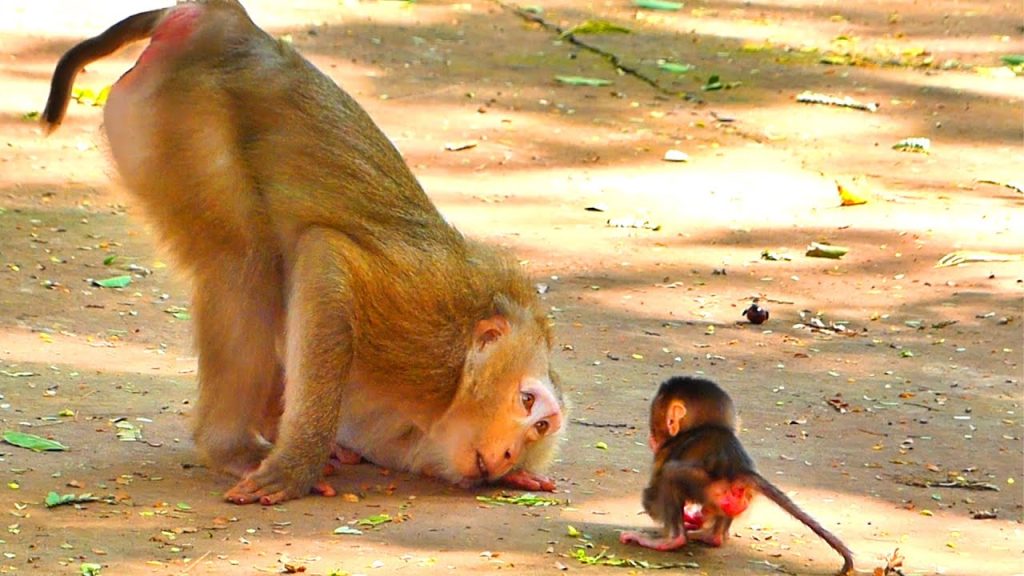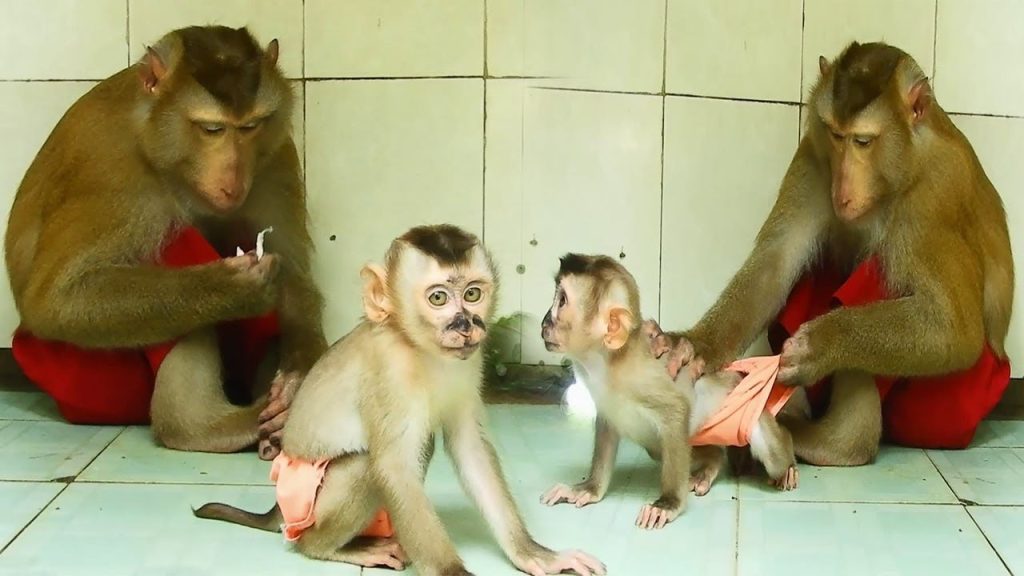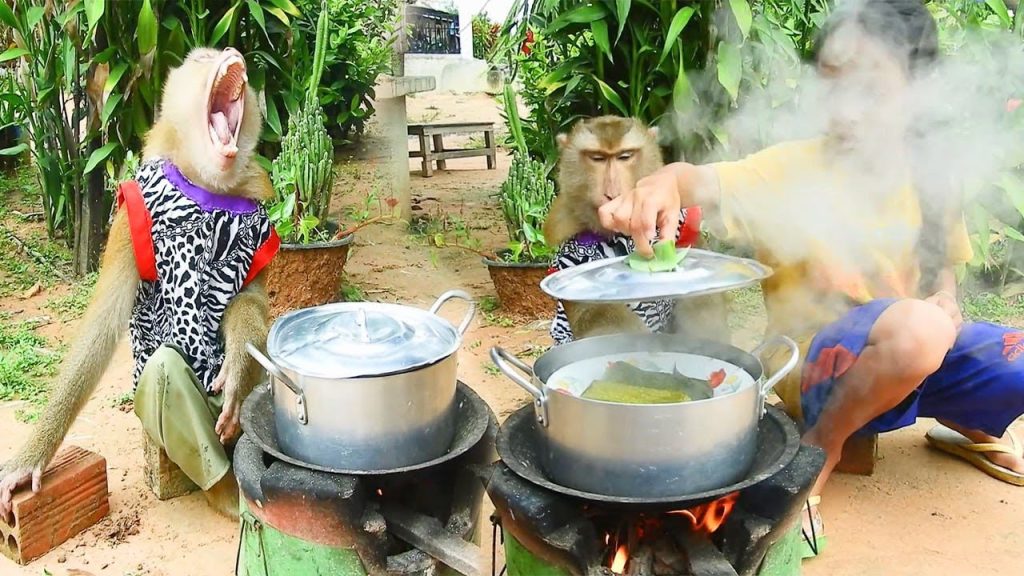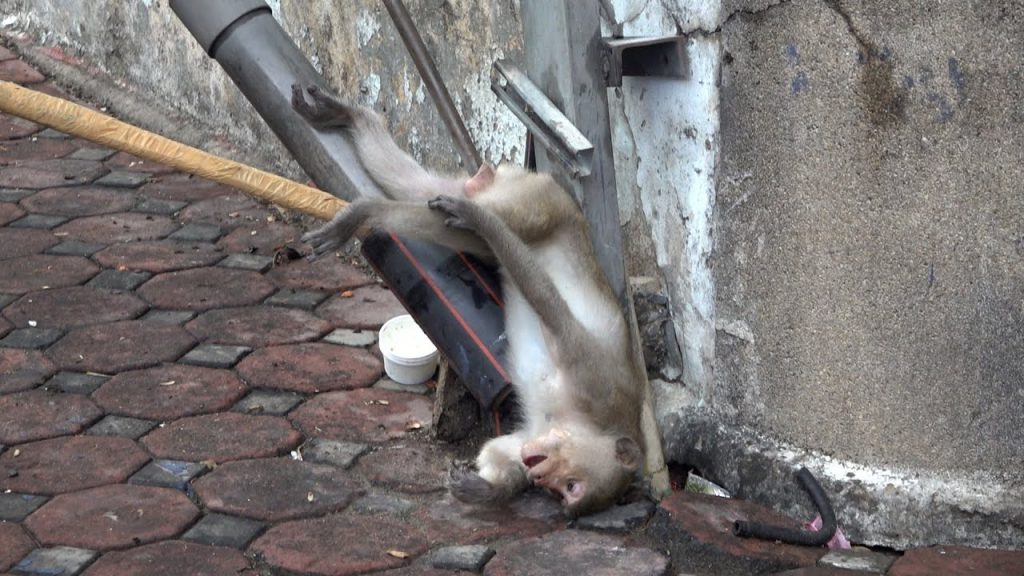
In the quiet of the forest, a gentle scene unfolds: Mama Milina, a mother monkey, cradles her tiny newborn baby close to her chest. Her soft eyes gaze lovingly at the fragile little creature she brought into the world just days ago. With delicate gestures, she strokes the baby’s tiny head and murmurs soft, comforting sounds—low hums, quiet clicks, and tender grunts. These are the sounds of maternal love, the language of care that only a mother and her baby truly understand.
Mama Milina’s gentle communication is more than instinct; it’s emotion. Her soft vocalizations are a form of reassurance, a way to tell her baby, “I’m here. You are safe.” Every whisper from her lips soothes her infant, who clings tightly to her fur, eyes still adjusting to the brightness of the world. Though the baby cannot yet understand words, it understands tone, warmth, and rhythm—just as human babies do.
Primates, especially monkeys, have highly developed social and emotional intelligence. They don’t just survive together; they form relationships, care deeply, and express emotions. Milina’s way of talking softly to her baby is not rare in the animal kingdom, but it is deeply meaningful. It shows how maternal love crosses species lines and how powerful the connection between mother and child can be.
Every movement Mama Milina makes is careful and filled with love. She shifts gently as she holds her baby, always making sure it’s secure. She keeps her baby warm by curling her body around it when the wind picks up. When other monkeys approach, she shields her baby without aggression—just a firm glance, a clear message: “This is my baby.”
Researchers who observe monkey behavior have noted how mothers use specific sounds when interacting with their infants. These “motherese” tones—soft, high-pitched, and rhythmic—are much like the baby talk humans use. These sounds build bonds and encourage the baby to respond, even before it can vocalize itself. It’s a language built from love, comfort, and connection.
In the moments when her baby fusses or lets out a tiny squeak, Mama Milina reacts instantly. She cuddles closer, softly grooming its tiny back, calming the baby with her touch and gentle murmurs. Her love is evident—not just in protection, but in patience, tenderness, and time. She teaches the baby, through her presence, that the world is a safe place as long as she is near.
Watching Mama Milina is like watching love in its purest form. It’s a reminder that motherly love is a universal language—spoken not only by humans but by all creatures who care for their young. Her quiet whispers, her nurturing eyes, and her steady warmth show how deep that love can go.


